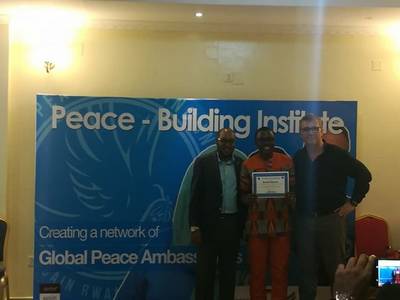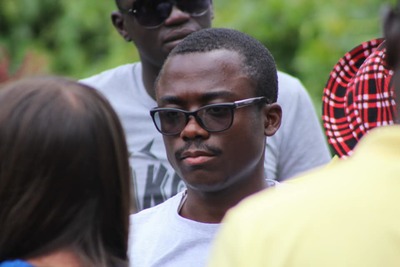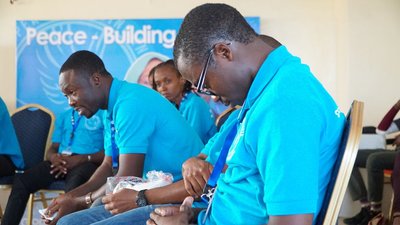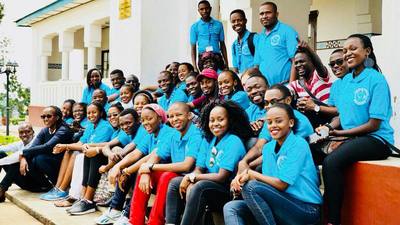My experience: Peace Building Institute – Rwanda
It was the last day, when I saw a call for application to the PBI program. I gave it my best and applied. Three weeks later, I got an email I had been accepted into the Peace Building Institute. The institute is a bi-annual program bringing together youth and young professionals. PBI gave us the opportunity to learn about Rwanda’s history, as well as engage in a series of activities, and discussions about post-conflict development approaches.
The institute this year brought together 30 of us from Rwanda, Kenya, Uganda, Tanzania, Burundi, South Sudan, Nigeria, Zimbabwe, Democratic Republic of Congo and Sudan. PBI is a program of Never Again Rwanda - a social peace building and social justice organization – and now in its 16th edition. NAR’s vision for the PBI is to create a network of Global Peace Ambassadors that will be change agents in their different communities. We all descended into Kigali on the 25th of February where our 14 days journey – memorable 2 weeks – kicked off.
Different thought provoking themes were covered ranging from the causes and stages of genocide, strategies of genocide prevention, success and challenges, the role of media in peacebuilding, stereotypes and identity manipulation and critical thinking to mention but a few. I learned a lot from my fellow participants, the facilitators and got an in-depth understanding into the Rwanda Genocide. We had the opportunity for different sight visits like the Gisozi Memorial, Murambi Memorial- this was the most intense sight visit for me, the king’s palace and the presidential palace. Below are a few of my reflections:
For any positive peace building initiative to work, there must be strong leadership and political will. The 1994 Genocide in Rwanda was successful in part due to strong political will and leadership at the time, with same will in place, peace can be built and maintained in conflict regions. There must be a common language for peace initiative to work. Peace is contextual and what worked in Rwanda may not work in other places however, lessons learned from the Rwanda case and be adapted to fit the context in which such initiatives are applied. To have peace, we need a network of people striving for similar goal and the whole process must be inclusive and diverse because peace cannot be promoted in isolation.
As young people, we must not underestimate our role in contributing to peace building and development in our different communities, in one of the sessions on the role of faith based organizations in conflict resolution, Dr. Antione reminded us of not being stupid by shifting responsibility or scapegoating others for our problems. He went on to assert that the greatest failure of any organization will be its inability to analyze community needs, providing warning in advance and helping to heal before it becomes late. This fact was also supported by the critical thinking class where I was sent into a deep reflection mode after a simple task which I taught was just a game resulted into a deep questioning of my actions.
There is more that unites us than divides us and as youths, it is upon our shoulders to ensure peace in our communities, being mindful of the words we say, quick to realize stereotypes and fighting them because for every of our action or inaction, there is a consequence. Whichever point you are right now in your life, the time for the blame game must stop because we can’t drive into the future looking into the past rather, pick lessons and move on to the future. I made a commitment after the training to scale up peace clubs across high schools in Africa, a project under the Global Network for Sustainable development contributing to the sustainable development goals and striving to ensure that Genocide never happens again.
It was the last day, when I saw a call for application to the PBI program. I gave it my best and applied. Three weeks later, I got an email I had been accepted into the Peace Building Institute. The institute is a bi-annual program bringing together youth and young professionals. PBI gave us the opportunity to learn about Rwanda’s history, as well as engage in a series of activities, and discussions about post-conflict development approaches.
The institute this year brought together 30 of us from Rwanda, Kenya, Uganda, Tanzania, Burundi, South Sudan, Nigeria, Zimbabwe, Democratic Republic of Congo and Sudan. PBI is a program of Never Again Rwanda - a social peace building and social justice organization – and now in its 16th edition. NAR’s vision for the PBI is to create a network of Global Peace Ambassadors that will be change agents in their different communities. We all descended into Kigali on the 25th of February where our 14 days journey – memorable 2 weeks – kicked off.
Different thought provoking themes were covered ranging from the causes and stages of genocide, strategies of genocide prevention, success and challenges, the role of media in peacebuilding, stereotypes and identity manipulation and critical thinking to mention but a few. I learned a lot from my fellow participants, the facilitators and got an in-depth understanding into the Rwanda Genocide. We had the opportunity for different sight visits like the Gisozi Memorial, Murambi Memorial- this was the most intense sight visit for me, the king’s palace and the presidential palace. Below are a few of my reflections:
For any positive peace building initiative to work, there must be strong leadership and political will. The 1994 Genocide in Rwanda was successful in part due to strong political will and leadership at the time, with same will in place, peace can be built and maintained in conflict regions. There must be a common language for peace initiative to work. Peace is contextual and what worked in Rwanda may not work in other places however, lessons learned from the Rwanda case and be adapted to fit the context in which such initiatives are applied. To have peace, we need a network of people striving for similar goal and the whole process must be inclusive and diverse because peace cannot be promoted in isolation.
As young people, we must not underestimate our role in contributing to peace building and development in our different communities, in one of the sessions on the role of faith based organizations in conflict resolution, Dr. Antione reminded us of not being stupid by shifting responsibility or scapegoating others for our problems. He went on to assert that the greatest failure of any organization will be its inability to analyze community needs, providing warning in advance and helping to heal before it becomes late. This fact was also supported by the critical thinking class where I was sent into a deep reflection mode after a simple task which I taught was just a game resulted into a deep questioning of my actions.
There is more that unites us than divides us and as youths, it is upon our shoulders to ensure peace in our communities, being mindful of the words we say, quick to realize stereotypes and fighting them because for every of our action or inaction, there is a consequence. Whichever point you are right now in your life, the time for the blame game must stop because we can’t drive into the future looking into the past rather, pick lessons and move on to the future. I made a commitment after the training to scale up peace clubs across high schools in Africa, a project under the Global Network for Sustainable development contributing to the sustainable development goals and striving to ensure that Genocide never happens again.




